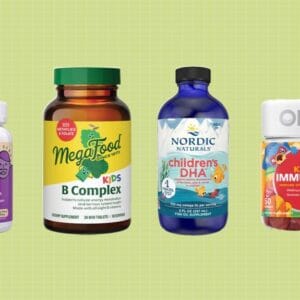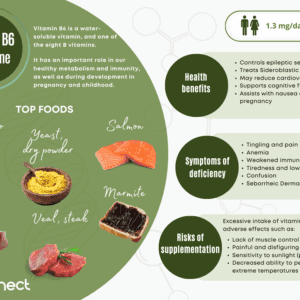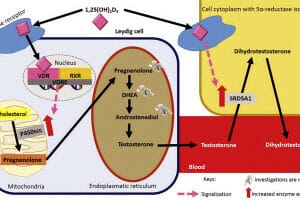After giving birth, a woman’s body requires essential nutrients to recover from the physical demands of pregnancy and childbirth. Postnatal vitamins play a crucial role in replenishing depleted stores, supporting healing, and promoting overall health. A well-balanced diet is vital, but supplements can help fill nutritional gaps. Certain vitamins and minerals are particularly important for new mothers, aiding in energy production, tissue repair, and immune function. Understanding the essential postnatal vitamins can help women make informed decisions about their postpartum care and support their overall recovery and wellbeing during this critical period.

Nutritional Support for Postnatal Recovery
After childbirth, a woman’s body undergoes significant changes and requires adequate nutrition to support the healing process and overall well-being. Essential postnatal vitamins play a crucial role in replenishing depleted nutrients, promoting recovery, and maintaining the health of both mother and baby.
Role of Vitamins in Postnatal Recovery
Vitamins are vital for various bodily functions, including energy production, immune function, and tissue repair. During the postnatal period, vitamins help in healing and recovery, supporting the mother’s physical and emotional health. Key vitamins include Vitamin C, which is important for collagen synthesis and iron absorption, and Vitamin D, crucial for bone health and immune function.
Importance of Iron and Calcium
Iron and calcium are two essential minerals that are often depleted during pregnancy and childbirth. Iron is vital for the production of red blood cells and preventing anemia, while calcium supports bone health and is crucial for the mother’s and baby’s overall health, particularly if breastfeeding. Ensuring adequate intake of these minerals is essential for a speedy recovery.
| Nutrient | Importance | Food Sources |
|---|---|---|
| Iron | Prevents anemia, supports energy production | Red meat, spinach, fortified cereals |
| Calcium | Supports bone health, crucial for breastfeeding | Dairy products, leafy greens, fortified plant-based milk |
Benefits of Omega-3 Fatty Acids
Omega-3 fatty acids, particularly EPA and DHA, are important for heart health and may support mental health by reducing symptoms of postpartum depression. They are also transferred to the baby through breast milk, supporting the baby’s brain development. Including sources of omega-3s in the diet is beneficial for both mother and baby.
Vitamin B Complex for Energy
The Vitamin B complex includes several vitamins that are crucial for energy production. After childbirth, new mothers often experience fatigue, and adequate intake of Vitamin B complex can help alleviate this by supporting metabolic processes and energy production.
| Vitamin B | Function | Food Sources |
|---|---|---|
| B12 | Essential for energy production, nerve function | Animal products, fortified plant-based milk |
| Folate | Crucial for preventing anemia, supporting fetal development during future pregnancies | Leafy greens, legumes, fortified cereals |
Choosing the Right Postnatal Supplements
When selecting postnatal vitamins or supplements, it’s essential to consider the quality and composition. Look for products that contain a balanced mix of essential nutrients, including iron, calcium, and omega-3 fatty acids. Always consult with a healthcare provider before starting any new supplement regimen to ensure it meets individual needs and is safe for breastfeeding mothers.
What supplements are good for postpartum healing?

The postpartum period is a critical time for new mothers, and proper nutrition plays a vital role in the healing process. Several supplements can support postpartum recovery, but it’s essential to consult with a healthcare provider before adding any new supplements to your regimen.
Nutritional Supplements for Postpartum Recovery
A well-balanced diet is crucial during the postpartum period, and certain supplements can help fill any nutritional gaps. Omega-3 fatty acids, particularly EPA and DHA, are essential for reducing inflammation and promoting healing. Other beneficial supplements include:
- Iron supplements to replenish lost iron due to blood loss during delivery
- Calcium and Vitamin D to support bone health
- Probiotics to maintain a healthy gut microbiome
Supplements for Postpartum Healing and Energy
Postpartum recovery can be physically demanding, and new mothers often experience fatigue. Certain supplements can help alleviate fatigue and support the healing process. B vitamins, particularly B12, play a crucial role in energy production. Other beneficial supplements include:
- Magnesium to help with muscle relaxation and reduce the risk of postpartum cramps
- Adaptogenic herbs like ashwagandha and rhodiola to help manage stress
- Coenzyme Q10 (CoQ10) to support energy production
Herbal Supplements for Postpartum Support
Certain herbal supplements have been traditionally used to support postpartum recovery. Herbal teas like red raspberry leaf tea and chamomile tea can help with relaxation and uterine health. Other beneficial herbal supplements include:
- Turmeric with its anti-inflammatory properties to aid in healing
- Ginger to help with nausea and digestion
- Chasteberry to support hormonal balance
What vitamins should I take daily after giving birth?

After giving birth, it’s essential to maintain a balanced diet rich in essential nutrients to support physical recovery and, if breastfeeding, the production of milk that’s rich in vitamins and minerals for the baby. The vitamins and nutrients a new mother should consider taking daily can vary based on factors such as overall health, diet, and whether she is breastfeeding.
Key Vitamins and Minerals for Postpartum Health
New mothers require a range of vitamins and minerals to support their health and, if applicable, their baby’s development through breast milk. Key among these are iron, to replenish stores depleted during pregnancy and childbirth, calcium, for bone health, and vitamin D, which is crucial for calcium absorption and bone health in both mother and baby.
- Iron supplements help counteract the loss of blood during delivery and support the mother’s energy levels.
- Calcium and Vitamin D are vital for maintaining the mother’s bone density and, if breastfeeding, supporting the baby’s bone development.
- A postnatal multivitamin can help fill any nutritional gaps in the mother’s diet, ensuring she gets all the necessary vitamins and minerals.
Nutritional Considerations for Breastfeeding Mothers
Breastfeeding mothers have a higher demand for certain nutrients because they are secreting milk that provides the baby with all the necessary vitamins and minerals. For instance, the demand for omega-3 fatty acids, particularly DHA, is increased as it is secreted into the breast milk and is crucial for the baby’s brain and eye development.
- DHA supplements support the baby’s brain and eye development through breast milk.
- Vitamin B12 is important for the production of red blood cells in both the mother and the baby.
- Adequate maternal hydration is also crucial for milk production, alongside a balanced intake of electrolytes.
General Dietary Recommendations
While supplements can help fill nutritional gaps, a well-balanced diet is fundamental for new mothers. Foods rich in folate, iron, zinc, and protein are particularly beneficial. It’s also advisable to continue taking a postpartum vitamin supplement as directed by a healthcare provider to ensure adequate nutrition.
- Eating a variety of fruits and vegetables provides essential vitamins and minerals.
- Including lean proteins and whole grains in the diet supports overall health and energy levels.
- Hydration is key, especially for breastfeeding mothers, to support milk production and overall health.
What vitamins should I take after finding out I'm pregnant?

When you find out you’re pregnant, it’s essential to take the right vitamins to support your health and the development of your baby. The most critical vitamins to take during pregnancy are those that support fetal development, prevent birth defects, and maintain the mother’s overall health.
Essential Vitamins for Pregnancy
The key vitamins to take during pregnancy include those that support the baby’s growth and development. Folic acid is crucial in preventing birth defects of the brain and spine. The recommended daily intake of folic acid is 600-800 mcg. Other essential vitamins include iron, which supports the production of red blood cells, and calcium, which is vital for fetal bone development. Here are the top three essential vitamins to consider:
- Folic acid: prevents birth defects of the brain and spine
- Iron: supports the production of red blood cells and prevents anemia
- Calcium: vital for fetal bone development and maintaining the mother’s bone health
Additional Nutrients for a Healthy Pregnancy
In addition to the essential vitamins, other nutrients play a crucial role in maintaining a healthy pregnancy. Omega-3 fatty acids support fetal brain development, while vitamin D is essential for bone health and immune function. It’s also important to consider probiotics, which support gut health and immune function. Here are three additional nutrients to consider:
- Omega-3 fatty acids: support fetal brain development and may reduce the risk of premature birth
- Vitamin D: essential for bone health, immune function, and may reduce the risk of pregnancy complications
- Probiotics: support gut health, immune function, and may reduce the risk of pregnancy-related complications
Consulting a Healthcare Provider
Before starting any vitamin or supplement regimen during pregnancy, it’s essential to consult with a healthcare provider. They can help determine the best course of action based on individual needs and health status. A healthcare provider can also recommend prenatal vitamins that contain the necessary nutrients for a healthy pregnancy. Here are three reasons to consult a healthcare provider:
- Personalized recommendations: a healthcare provider can tailor vitamin and supplement recommendations to individual needs
- Risk assessment: a healthcare provider can assess potential risks associated with certain vitamins and supplements during pregnancy
- Prenatal care: regular prenatal care can help ensure a healthy pregnancy and identify any potential complications early on
What vitamins should baby have after birth?

After birth, babies require essential vitamins and nutrients for growth and development. The primary source of these nutrients is breast milk or formula. However, some vitamins are particularly crucial for newborns.
Essential Vitamins for Newborns
Newborn babies require certain vitamins to maintain optimal health. The most critical vitamins include Vitamin D, Vitamin K, and Vitamin B12. These vitamins play a vital role in various bodily functions, such as bone development, blood clotting, and the production of red blood cells.
- Vitamin D is crucial for bone development and density.
- Vitamin K is necessary for blood clotting and preventing bleeding complications.
- Vitamin B12 plays a vital role in the production of red blood cells and nerve function.
Role of Vitamin D in Newborns
Vitamin D is particularly important for newborns as it aids in the absorption of calcium, which is necessary for bone development. A deficiency in Vitamin D can lead to conditions such as rickets, characterized by soft and weakened bones.
- Vitamin D helps regulate calcium levels in the body.
- It is essential for maintaining strong bones and teeth.
- Adequate levels of Vitamin D can help prevent bone disorders.
Administration of Vitamins to Newborns
The administration of vitamins to newborns is typically done through supplements or fortified formula. Breastfed babies may require additional Vitamin D supplements, as breast milk may not provide sufficient amounts.
- Vitamin K is usually administered via injection at birth.
- Vitamin D supplements are often recommended for breastfed babies.
- Formula-fed babies may receive necessary vitamins through fortified formula.
Frequently Asked Questions
What are the essential postnatal vitamins for recovery?
After giving birth, new mothers need to replenish their nutrient stores to aid in the healing process and support overall health. The essential postnatal vitamins for recovery include iron, calcium, and vitamin D. Iron is crucial for replenishing blood stores after delivery, while calcium and vitamin D support bone health and may help alleviate symptoms of postpartum depression. Additionally, omega-3 fatty acids and probiotics can support heart health and digestive well-being during the postpartum period.
Why is iron important for postnatal recovery?
Iron is a vital nutrient for new mothers, as it helps to replenish blood stores after delivery. During childbirth, women often experience significant blood loss, which can lead to iron deficiency if not adequately addressed. Iron supplements can help to alleviate fatigue, support energy production, and promote overall well-being. Furthermore, iron plays a critical role in supporting the body’s immune function, which is essential for fighting off infections during the postpartum period.
Can postnatal vitamins support breastfeeding?
Yes, certain postnatal vitamins can support breastfeeding by providing essential nutrients that are vital for both the mother’s and baby’s health. For example, calcium and vitamin D are crucial for maintaining the mother’s bone density, while also supporting the baby’s bone development. Additionally, omega-3 fatty acids can support the baby’s brain and eye development, and probiotics can promote a healthy gut microbiome in both the mother and baby.
How long should new mothers take postnatal vitamins?
The duration for which new mothers should take postnatal vitamins varies depending on individual needs and health status. Generally, it is recommended to continue taking postnatal vitamins for at least 6-12 weeks after delivery, or as directed by a healthcare provider. However, some women may need to continue taking certain supplements for a longer period, particularly if they are breastfeeding or experiencing ongoing health issues. It’s essential to consult with a healthcare provider to determine the best course of action for individual needs.














